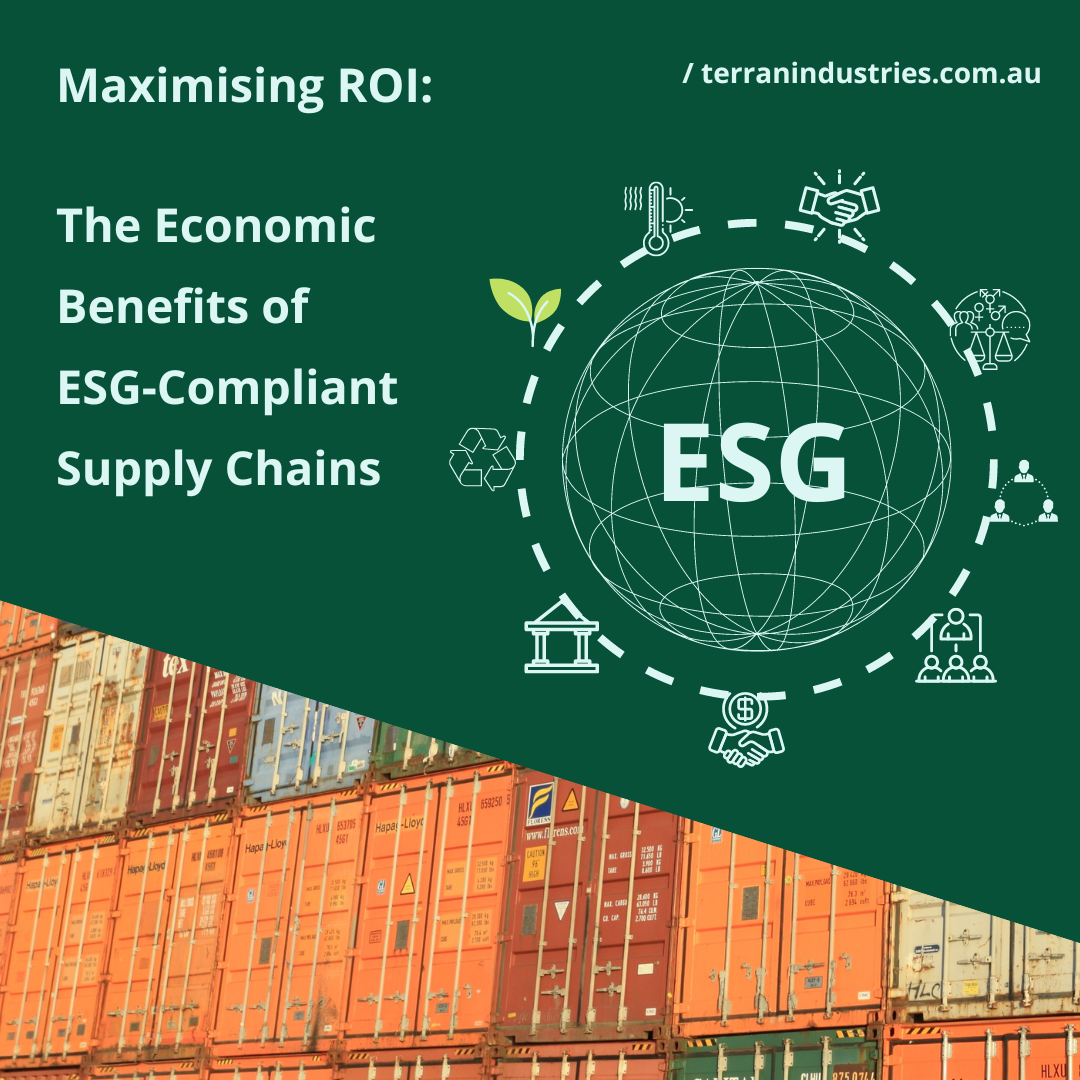BusinessESGSupply ChainMaximising ROI: The Economic Benefits of ESG In Supply Chain

As the world faces increasing environmental, social, and governance (ESG) challenges, businesses are recognising the need to adopt sustainable practices across their operations. One crucial area where organisations can make a significant impact is in their supply chains.
Embracing ESG-compliant supply chains not only aligns with corporate social responsibility, but it also brings substantial economic benefits. In this article, we will explore why switching to ESG-compliant supply chains is economically advantageous for businesses.
Enhancing Reputation and Brand Value
Adopting ESG-compliant supply chains helps businesses build a positive reputation and enhance their brand value. In today's socially conscious market, consumers prefer to support companies that demonstrate a commitment to sustainable practices. By showcasing a commitment to ESG values, businesses can attract environmentally and socially conscious consumers, leading to increased customer loyalty, positive word-of-mouth recommendations, and ultimately, higher sales.
Accessing New Markets and Customers
Companies that prioritise ESG compliance in their supply chains gain a competitive advantage by accessing new markets and customers. Many governments, regulatory bodies, and organisations now demand ESG compliance in their procurement processes. By meeting these requirements, businesses can unlock opportunities to collaborate with public entities, large corporations, and socially responsible investors. This expanded customer base can lead to increased sales volumes, higher revenues, and improved profitability.
Reducing Operational Costs
ESG-compliant supply chains often result in lower operational costs over the long term. By adopting sustainable practices, businesses can reduce energy consumption, optimise resource utilisation, and minimise waste generation. These measures not only lower costs but also contribute to improved operational efficiency and productivity. For example, investing in energy-efficient technologies, such as renewable energy sources and energy-saving equipment, can lead to substantial savings in utility bills.
Mitigating Risks and Ensuring Resilience
Adopting ESG-compliant supply chains helps businesses mitigate risks and ensure long-term resilience. Climate change, resource scarcity, and social disruptions can significantly impact supply chain operations and disrupt business continuity. By embracing sustainability, organisations can proactively address these risks. Diversifying suppliers, assessing environmental vulnerabilities, and fostering stakeholder relationships can mitigate potential disruptions, safeguarding the supply chain against unforeseen events and reducing financial losses.
Attracting and Retaining Top Talent
Employees, especially millennials and Gen Z, prioritise working for companies that align with their values. Adopting ESG-compliant supply chains helps businesses attract and retain top talent. Employees are more likely to be engaged and motivated when they work for an organisation that demonstrates a commitment to environmental and social responsibility. Companies that prioritise sustainability in their operations create a positive work environment, which can lead to increased productivity, reduced turnover rates, and ultimately, lower recruitment and training costs.
Anticipating Regulatory Changes
The global shift toward sustainability is reflected in the tightening of regulatory frameworks. Governments are introducing stricter environmental and social regulations, and non-compliance can result in fines, reputational damage, and legal consequences. By proactively adopting ESG-compliant supply chains, businesses can stay ahead of regulatory changes, minimise compliance risks, and avoid costly penalties. Furthermore, companies that demonstrate a commitment to sustainability are more likely to influence future policy developments and shape regulations in a way that supports their business interests.
Conclusion
Switching to ESG-compliant supply chains is not just a moral imperative; it also brings significant economic benefits to businesses.
Enhancing reputation, accessing new markets, reducing operational costs, mitigating risks, attracting top talent, and anticipating regulatory changes are all tangible advantages that contribute to long-term profitability and success.
By integrating sustainability into their supply chains, companies can simultaneously contribute to a positive societal impact and drive sustainable economic growth.

Evannah Jayne
Founder & CEO
A passion for sustainability and a desire to change the world, Evannah seeks to raise awareness of the important issues surrounding our planet today.
